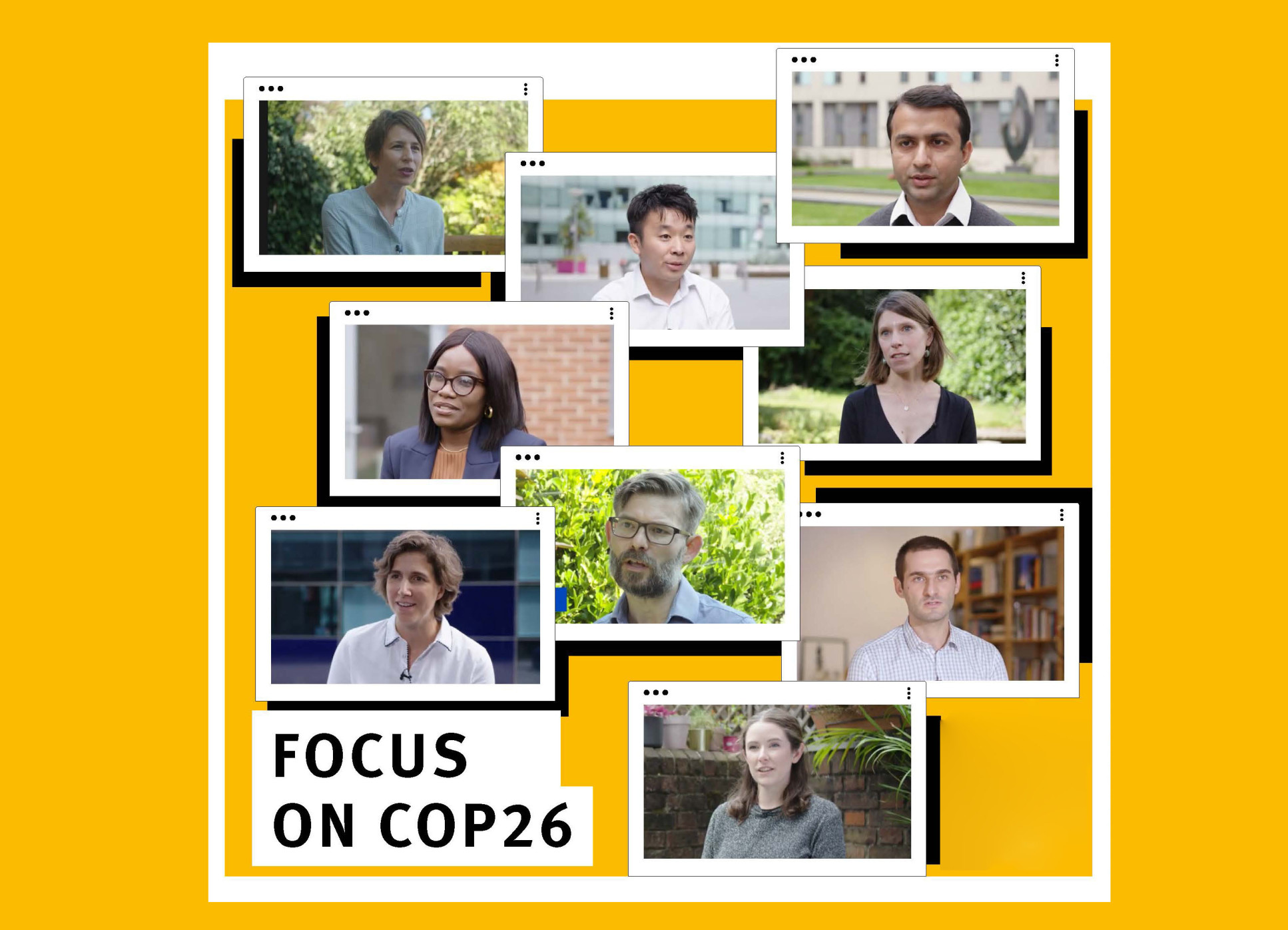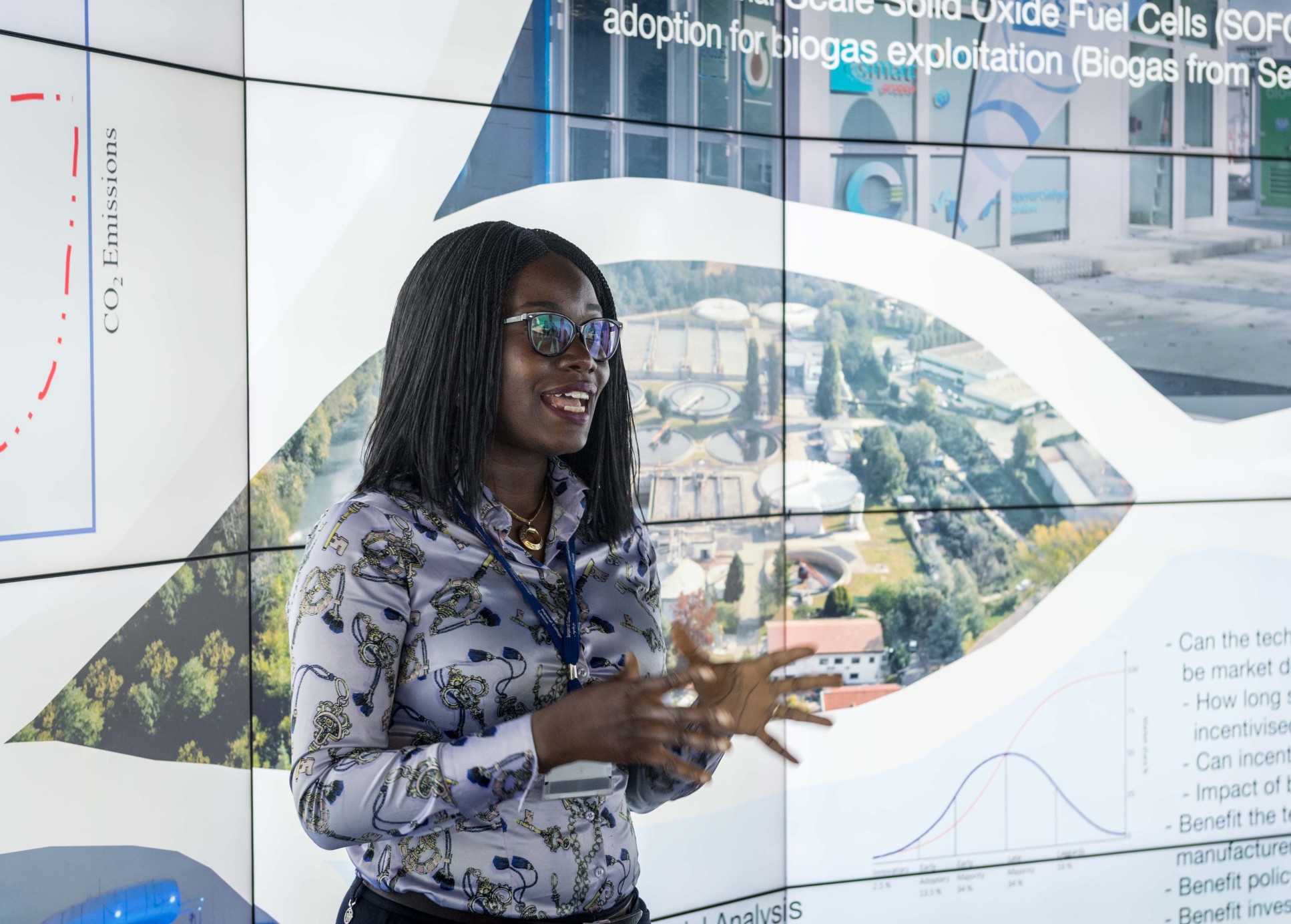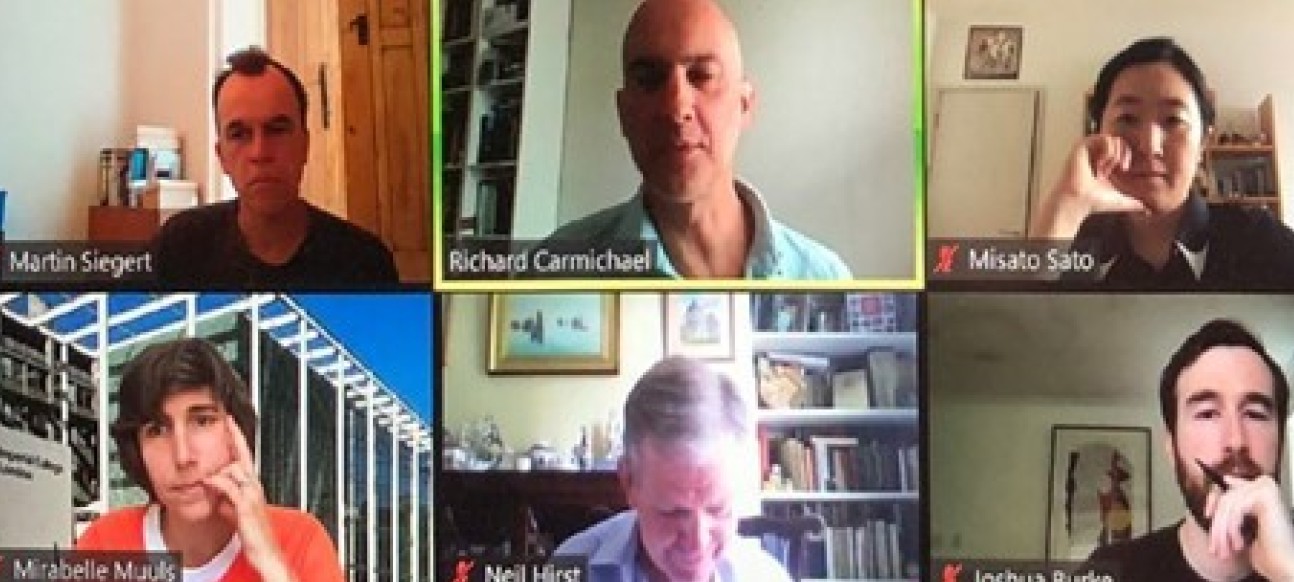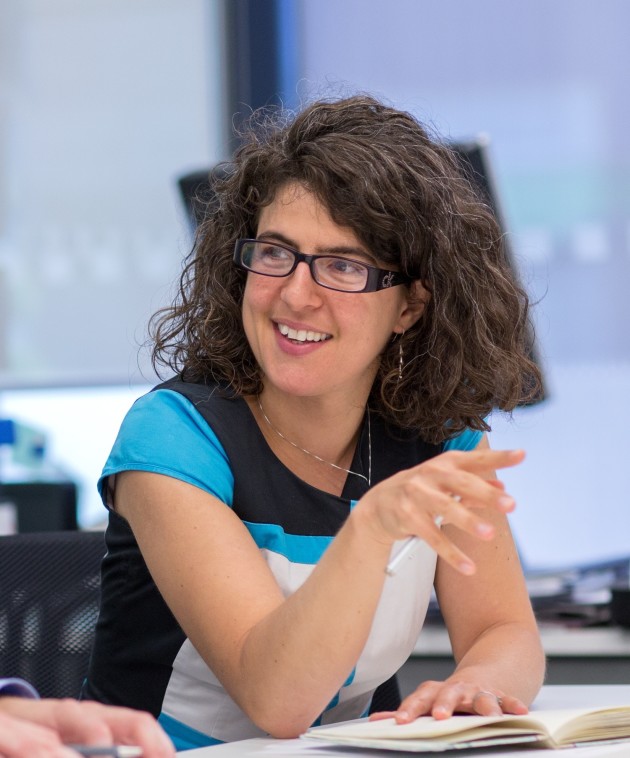
[Imperial voices on climate and environment: Imperial academics talk about their research, why it matters when it comes to tackling global issues like climate change and the biodiversity crisis, and how it is relevant internationally in the build up to the COP26 climate conference. WATCH: Imperial voices on climate and environment]
As COVID-19 swept the world, the decision to delay the 26th UN Climate Summit (COP26), originally scheduled for November 2020 in Glasgow, was unavoidable. Countries could not feasibly anticipate meeting to agree increased ambition on climate change while grappling with the pandemic. However, postponing COP26 does not mean postponing climate action. A very public spotlight that recognised the need for a green recovery from COVID-19 has only increased calls for countries to raise the bar in their climate action plans.
With the United Kingdom government at the helm of the conference, now taking place in November 2021, the Grantham Institute is bringing together the expertise of UK academics to help raise ambition at COP26 on delivering a low-carbon, resilient world. Working with UK policymakers and industry partners, the Institute also aims to help make COP26 a successful catalyst for accelerated climate action.
Road to COP26
- Profile: Sigourney Luz, IPCC Working Group III Communications Manager
- New technologies can help address difficult-to-reduce emissions
- Experts support policymakers to go green
- UK universities work together for ambitious outcomes at COP26
- Quick read: Ones to watch
 Imperial co-hosts IPCC Working Group (WG) III, one of three scientific units of the Intergovernmental Panel on Climate Change (IPCC), a UN body that assesses climate change science. Their reports inform governments and policymakers as they discuss and negotiate international agreements (such as the Paris Agreement) or address the continuing rise in carbon emissions.
Imperial co-hosts IPCC Working Group (WG) III, one of three scientific units of the Intergovernmental Panel on Climate Change (IPCC), a UN body that assesses climate change science. Their reports inform governments and policymakers as they discuss and negotiate international agreements (such as the Paris Agreement) or address the continuing rise in carbon emissions.
It is the job of Communications Manager Sigourney Luz – she signs her emails ‘Siggy’ – to get this information in front of the right people at the right time. “It can seem confusing to people who aren’t familiar with the process,” she says about the relationship between the IPCC and the UN Climate Conference, officially called the Conferences of Parties (COP), which is where representatives of nations (the Parties) get together to agree on the approach and look at progress already made to prevent further global warming.
During the coming year, IPCC scientists are preparing to publish their sixth assessment report on climate change. IPCC reports are lengthy documents that demand high standards to ensure they remain the most highly trusted source of information on climate change. They also include a shorter Summary for Policymakers.
“It’s rare to reach broad agreement about such complex science,” says Ms Luz. “Approving a report is a rigorous process, and even before that stage the scientists take into consideration thousands of pieces of evidence and science, feedback from climate and policy experts, and governments from around the world. It is important to be really thorough before publishing a report.”
COVID-19 meant a delay for WG III, and their contribution to the next report is currently expected for release after COP26. But Ms Luz is hopeful that the pandemic experience means governments and people around the world appreciate that “responding together and safeguarding the planet” are common goals we all can agree on.
FIND OUT MORE: Imperial at COP26
 Meeting international climate targets requires major cuts in carbon emissions. However, some emissions – such as those from heavy industries – are hard to eliminate. That is where ‘negative emissions technologies’, which remove carbon dioxide directly from the atmosphere, may come in. The question is, what kind of solutions are the most attainable on a large scale? And which will bring benefits to wider society?
Meeting international climate targets requires major cuts in carbon emissions. However, some emissions – such as those from heavy industries – are hard to eliminate. That is where ‘negative emissions technologies’, which remove carbon dioxide directly from the atmosphere, may come in. The question is, what kind of solutions are the most attainable on a large scale? And which will bring benefits to wider society?
Imperial Professors Niall Mac Dowell, Geoff Maitland and Nilay Shah study the potential for ‘nature-based solutions’ such as tree planting as well as technologies, including carbon capture and storage. “We are creating new industries and economies that will result in the creation and preservation of jobs and communities across the world,” says Professor Mac Dowell.
A roundtable organised by the All- Party Parliamentary Group on Climate Change, and sponsored by the Grantham Institute, also explored how to address the carbon footprint of heavy industries. Imperial’s Dr Gbemi Oluleye (pictured) emphasised the need for “shortening the time between demonstration of new technologies and full commercialisation” in the industrial sector.
READ MORE: Turning convention on its head: how to reach net zero in the UK
[Image credit: Fergus Burnett/Imperial College London]
Achieving the UK’s goal of net zero emissions by 2050 will involve people making changes to what they eat, the things they buy, and how they travel. Transport, aviation, heating and diet are areas where shifts in behaviour can deliver the largest benefits for the environment, health and the economy.
In a report for the UK Climate Change Committee, Imperial’s Dr Richard Carmichael outlined what new policies can support individuals and households to make such greener choices. He said: “Consumers need support to take actions that will deliver large emissions reductions, but these need not be costly or require big lifestyle changes, and many come with co-benefits”.
The links between behaviour change and economic policy were also in focus at a discussion with members of the UK Treasury hosted by the Grantham Institute at Imperial and the Grantham Research Institute at LSE. The discussion, chaired by Imperial’s Dr Mirabelle Muûls, reflected on how to fairly distribute the costs of shifting to a net-zero economy.
READ MORE: Households could make big emissions reductions with the right Government support

 In 2015, countries came together to agree the landmark Paris Agreement on climate change. However, scientists have calculated that initial commitments to reduce carbon emissions are not enough. COP26 is the first opportunity for countries to pledge more ambitious plans and, with the UK government hosting the summit, universities up and down the country are committed to providing evidence to support this aim.
In 2015, countries came together to agree the landmark Paris Agreement on climate change. However, scientists have calculated that initial commitments to reduce carbon emissions are not enough. COP26 is the first opportunity for countries to pledge more ambitious plans and, with the UK government hosting the summit, universities up and down the country are committed to providing evidence to support this aim.
Grantham Institute Director of Policy and Translation, Alyssa Gilbert (pictured), is chairing the COP26 Universities Network, a growing group of more than 50 universities collaborating to drive ambitious outcomes at COP26 and beyond. Through a series of policy briefings, the network engages with the UK government on priority areas for cutting carbon emissions and adapting to the effects of climate change we are already experiencing, as well as engaging the public and working with partners across the world.
The network’s first publication showed how a sustainable recovery from COVID-19 can help the UK reach its goal for net-zero carbon emissions by 2050. The authors, including Imperial experts Dr Charles Donovan and Dr Ajay Gambhir, put forward ten economic stimulus policies that can create new jobs while also addressing climate change. These include investing in renewable energy infrastructure, increasing the coverage of broadband internet to allow more people to work effectively with others at a distance, and supporting ‘nature-based solutions’ – a term that includes projects like reforesting native trees to absorb carbon dioxide and protecting areas against flooding or overheating.
Ms Gilbert says: “The COP26 Universities Network delivers our knowledge directly into the hands of policymakers to help the UK build back better, embedding climate change concerns into creating a healthy and prosperous nation. As President of the next international climate change negotiations, the UK must demonstrate how a green economic recovery is possible.”
The network has also published a paper outlining the need to create new zero-carbon opportunities for workers and communities that currently rely on polluting industries that are no longer viable – known as a ‘just and socially inclusive’ transition to a net-zero economy. Future publications will address the importance of setting long-term targets to reach net zero emissions and how to preempt the effects of climate change.
Members of the network are also committed to improving access to skills and training for a green economy, increasing public engagement with a net-zero future and cutting their own carbon footprint.
READ MORE: A net-zero emissions economic recovery from COVID-19 | Just transition: pathways to socially inclusive decarbonisation
The Grantham Institute at Imperial worked with the Grantham Research Institute at LSE to appoint four researchers to assist the COP26 Universities Network. The COP26 Fellows will inform the Climate Summit through their focus on: youth engagement; non-state actors; climate finance for local adaptation; and, equitable energy system transitions. Their research activities will be shared with others in the Network, to stimulate academic communities to get involved in COP26.
As part of the COP26 Universities Network, the Grantham Institute is jointly organising a virtual conference on climate change to be held in spring 2021. The interdisciplinary event will bring together leading experts and researchers, policymakers and practitioners, to provide an independent forum for discussing priorities for the Climate Summit across areas such as: green recovery from COVID-19; solutions for cutting carbon emissions; adapting and resilience to the effects of climate change; and finance and nature-based solutions.
Following COVID-19, the need for generating green jobs to ‘build back better’ has never been stronger. The Grantham Institute’s Campaign Manager Katrine Petersen and Professor Dave Reay from University of Edinburgh are leading a group of representatives from UK government, industry groups and the wider education sector to identify ways to create the skills and education necessary to support the UK ‘s transition to a green economy. Through Professor Reay’s membership of the government’s new Green Jobs Taskforce, they will raise awareness of skills gaps and showcase opportunities during 2021 and beyond.
Contact us
General enquiries: grantham@imperial.ac.uk
Media: grantham.media@imperial.ac.uk
Phone us on: +44 (0)20 7594 9666
Privacy Notice
View the Grantham Institute Privacy Notice.